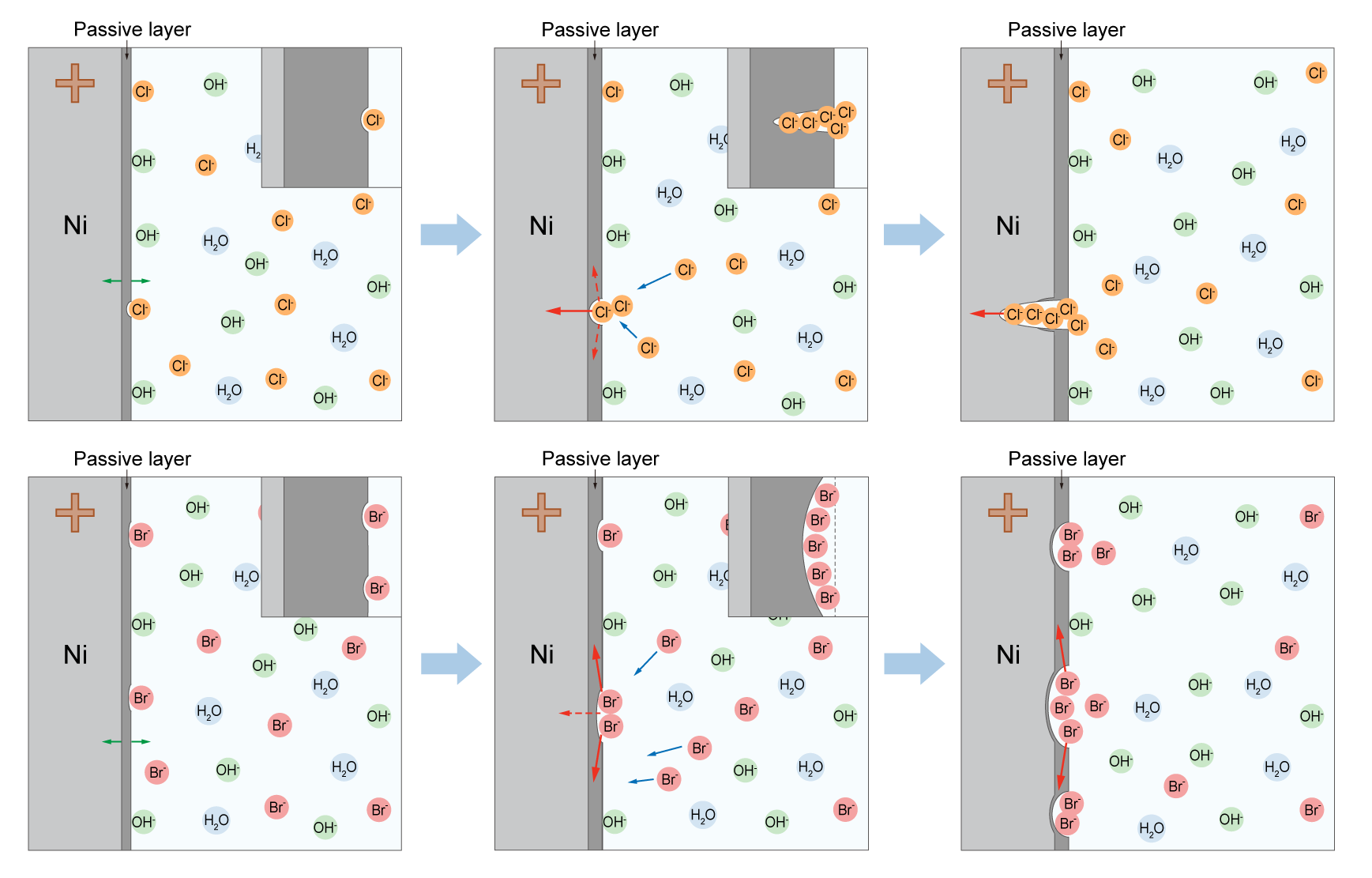Prof. LU Zhiyi, Prof. WANG Aiying and their collaborators at the Ningbo Institute of Materials Technology and Engineering (NIMTE) of the Chinese Academy of Sciences have elucidated the corrosion mechanism of Br- on Ni-based anodes, contributing to the stability of seawater electrolysis.
The study was published in Nature Communications.
Electrolysis of seawater to produce hydrogen has been considered as a cost-effective and sustainable energy conversion and storage strategy, contributing to the goal of "peak carbon dioxide emission and carbon neutrality". However, poor anode durability has limited the application of seawater electrolysis for hydrogen production.
Based on previous studies on the stability of seawater electrolysis, the researchers investigated the corrosion mechanism of anodes in seawater electrolysis. In addition to Cl-, Br- was found to be more harmful to Ni-based anodes in seawater electrolysis.
The evaluation results of electrochemical tests showed the inferior corrosion resistance and faster corrosion kinetics of Ni-based anodes in Br--containing electrolytes compared to those in Cl--containing electrolytes.
In-situ electrochemical measurements revealed that Cl- prefers to form localized corrosion with narrow-deep pits, while Br- tends to generate extensive corrosion with wide-shallow pits on Ni substrates.
Based on the density functional theory calculations and nudged elastic band simulations, this difference in corrosion behavior can be attributed to the slower diffusion and the lower reaction energy of Br- compared with Cl- in the passivation layer.
Furthermore, with respect to the Ni-based electrodes with catalysts, such as NiFe-LDH, Br- can induce large-area exfoliation of the catalyst layer during electrolysis, leading to the rapid performance degradation.
Despite the trace amount (0.53 mM) in seawater, Br- exerts great influence on the corrosion behavior of Ni substrates and thus deserves more attention.
The exploration of the corrosion mechanisms of Br- and Cl- on Ni-based anodes in this study can shed light on the design and synthesis of anodes for durable and stable seawater electrolysis.
This work was supported by the National Key Research and Development Project of China, the Ningbo Yongjiang Talent Introduction Programme, and the Bellwethers Project of Zhejiang Research and Development Plan, etc.







